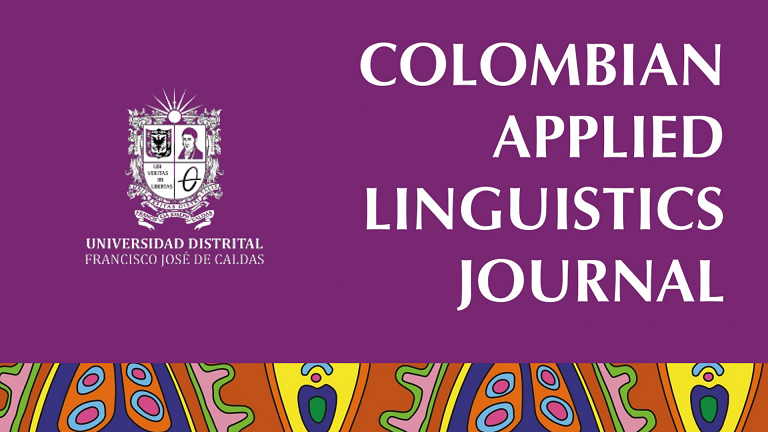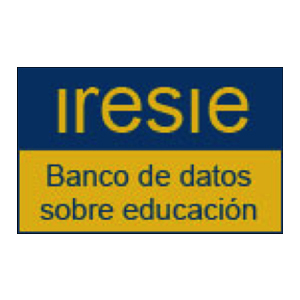Metas del lector e inferencias elaborativas: un recorrido por tres líneas de investigación
Reader Goals and Elaborative Inferences: A Journey through Three Research Lines
Metas do leitor e inferências elaborativas: uma viagem por três linhas de pesquisa
Las inferencias elaborativas han sido catalogadas como fundamentales para la comprensión de textos escritos, ya que constituyen un proceso nuclear en la construcción de un modelo de situación de lo leído. Por su parte, las metas de lectura destacan el papel activo del comprendedor, así como el control que este ejerce durante el proceso. El objetivo del presente artículo de reflexión es describir y analizar críticamente la manera en que se ha estudiado durante los últimos años la relación entre inferencias elaborativas y metas del lector desde tres líneas de investigación: comprensión estratégica, estándares de coherencia y relevancia. A partir de la evidencia empírica, se presentan los conceptos nucleares de cada línea como base para establecer aspectos comunes y diferencias. Posteriormente, desde una mirada crítica, se plantean fortalezas y limitaciones. Finalmente, se discuten las proyecciones de las propuestas, particularmente en el contexto educativo.
comprensión de textos escritos, comprensión estratégica, estándares de coherencia, relevancia (es)
compreensão de textos escritos, compreensão estratégica, standards de coerência, relevância (pt)
Albritton, D. (2004). Strategic Production of Predictive Inferences During Comprehension. Discourse Processes, 38(3), 309-322. https://doi.org/10.1207/ s15326950dp3803_2
Bohn-Gettler, C. y Kendeou, P. (2014). The Interplay of Reader Goals, Working Memory, and Text Structure During Reading. Contemporary Educational Psychology, 39(3), 206-219. https://doi.org/10.1016/j.cedpsych.2014.05.003
Bohn-Gettler, C. y McCrudden, M. (2018). Effects of Task Relevance Instructions and Topic Beliefs on Reading Processes and Memory. Discourse Processes, 55(4), 410-431. http://dx.doi.org/10.1080/0163853X.2017.1292824
Bohn-Gettler, C. y McCrudden, M. (2022). Effects of Emotions, Topic Beliefs, and Task Instructions on the Processing and Memory for a Dual-position Text. Discourse Processes, 59(1-2), 52-75. http://doi.org/10.1080/0163853X.2021.1918965
Carver, C. y Scheier, M. (2011). Self-regulation of Action and Affect. En K. Vohs y R. Baumeister (eds.), Handbook of Self-regulation: Research, Theory, and Applications (pp. 3-21). Guilford Press.
D’Mello, S., Lehman, B., Pekrun, R. y Graesser, A. (2014). Confusion Can Be Beneficial for Learning. Learning and Instruction, 29, 153-170. https://doi.org/10.1016/j.learninstruc.2012.05.003
Diamond, A. (2013). Executive functions. Annual Review of Psychology, 64, 135-68. https://doi.org/10.1146/annurev-psych-113011-143750
Diamond, A. y Lee, K. (2011). Interventions Shown to Aid Executive Function Development in Children 4 to 12 Years Old. Science, 333(6045), 959-964. https://doi.org/10.1126/science.1204529
Escudero, I. (2010). Las inferencias en la comprensión lectora: una ventana hacia los procesos cognitivos en segundas lenguas. Revista Nebrija de Lingüística Aplicada a la Enseñanza de Lenguas, 4(7), 6-32.
Garner, R., Gillingham, M. y White, C. (1989). Effects of “Seductive Details” on Macroprocessing and Microprocessing in Adults and Children. Cognition and Instruction, 6, 41-57.
Goldman, S. y Pellegrino, J. (2015). Research on Learning and Instruction: Implications for Curriculum, Instruction, and Assessment. Policy Insights from the Behavioral and Brain Sciences, 2(1), 33-41. https://doi.org/10.1177/2372732215601866
Graesser, A. (2006). An Introduction to Strategic Reading Comprehension. En D. McNamara (ed.), Reading Comprehension Strategies: Theories, Interventions, and Technologies (pp. 3-26). Lawrence Erlbaum.
Graesser, A. (2015). Deeper Learning with Advances in Discourse Science and Technology. Policy Insights from the Behavioral and Brain Sciences, 2(1), 42-50. https://doi.org/10.1177/2372732215600888
Graesser, A. y Lehman, B. (2011). Questions Drive Comprehension of Text and Multimedia. En M. McCrudden, J. Magliano y G. Schraw (eds.), Text Relevance and Learning from Text (pp. 53-74). Information Age Publishing.
Graesser, A., Li, H. y Feng, S. (2015). Constructing Inferences in Naturalistic Reading Contexts. En E. O’Brien, A. Cook y R. Lorch (eds.), Inferences During Reading (pp. 94-121). Cambridge University Press.
Graesser, A., Lu, S., Olde, B., Cooper-Pye, E. y Whitten, S. (2005). Question Asking and Eye Tracking During Cognitive Disequilibrium: Comprehending Illustrated Texts on Devices When the Devices Break Down. Memory & Cognition, 33(7), 1235-1247. https://doi.org/10.3758/BF03193225
Graesser, A., Singer, M. y Trabasso, T. (1994). Constructing Inferences During Narrative Text Comprehension. Psychological Review, 101(3). https://doi.org/10.1037/0033-295X.101.3.371
Just, M. y Carpenter, P. (1992). A Capacity Theory of Comprehension: Individual Differences in Working Memory. Psychological Review, 99(1), 122-149. https://doi.org/10.1037/0033-295X.99.1.122
Keefe, D. y McDaniel, M. (1993). The Time Course and Durability of Predictive Inferences. Journal of Memory and Language, 32(4), 446-463. https://doi.org/10.1006/jmla.1993.1024
Kendeou, P. y O‘Brien, E. (2018). Reading Comprehension Theories: A View from the Top Down. En M. Schober, D. Rapp y M. Britt (eds.), The Routledge Handbook of Discourse Processes (vol. 2) (pp. 7-21). Routledge.
Kendeou, P., McMaster, K. y Christ, T. (2016). Reading Comprehension: Core Components and Processes. Policy Insights from the Behavioral and Brain Sciences, 3(1), 62-69. https://doi.org/10.1177/2372732215624707
Kintsch, W. (1988). The Role of Knowledge in Discourse Comprehension: A Construction-integration Model. Psychological Review, 95(2). https://doi.org/10.1037/0033-295X.95.2.163
Kintsch, W. (1994). Text Comprehension, Memory, and Learning. American Psychologist, 49(4). https://doi.org/10.1037/0003-066X.49.4.294
Kintsch, W. (1998). Comprehension: A Paradigm for Cognition. Cambridge University Press.
Lehman, B., D’Mello, S. y Graesser, A. (2012). Confusion and Complex Learning During Interactions with Computer Learning Environments. The Internet and Higher Education, 15(3), 184-194. https://doi.org/10.1016/j.iheduc.2012.1.002
Lehman, S. y Schraw, G. (2002). Effects of Coherence and Relevance on Shallow and Deep Text Processing. Journal of Educational Psychology, 94(4). https://doi.org/10.1037//0022-0663.94.4.738
León, J. (2001). Las inferencias en la comprensión e interpretación del discurso. Un análisis para su estudio e investigación. Signos, 34(49-50), 113-125. http://dx.doi.org/10.4067/S0718-09342001004900008
León, J. (2003). Conocimiento y discurso: claves para inferir y comprender. Pirámide.
León, J. y Pérez, O. (2003). Taxonomías y tipos de inferencias. En J. León (ed.), Conocimiento y discurso: claves para inferir y comprender (pp. 45-66). Pirámide.
León, J., Solari, M., Olmos, R. y Escudero, I. (2011). La generación de inferencias dentro de un contexto social. Un análisis de la comprensión lectora a través de protocolos verbales y una tarea de resumen oral. Revista de Investigación Educativa, 29(1), 13-42. https://revistas.um.es/rie/article/view/115381
Linderholm, T. (2002). Predictive Inference Generation as a Function of Working Memory Capacity and Causal Text Constraints. Discourse Processes, 34(3), 259-280. https://doi.org/10.1207/S15326950DP3403_2
Linderholm, T. y van den Broek, P. (2002). The Effects of Reading Purpose and Working Memory Capacity on the Processing of Expository Text. Journal of Educational Psychology, 94(4). https://doi.org/10.1037/0022-0663.94.4.778
Linderholm, T., Cong, X. y Zhao, Q. (2008). Differences in Low and High Working-memory Capacity Readers’ Cognitive and Metacognitive Processing Patterns as a Function of Reading for Different Purposes. Reading Psychology, 29(1), 61-85. https://doi.org/10.1080/02702710701568587
Magliano, J., Trabasso, T. y Graesser, A. (1999). Strategic Processing During Comprehension. Journal of Educational Psychology, 91(4). https://doi.org/10.1037/0022-0663.91.4.615
Maier, J. y Richter, T. (2013). Text Belief Consistency Effects in the Comprehension of Multiple Texts with Conflicting Information. Cognition and Instruction, 31, 151-75. https://doi.org/10.1080/07370008.2013.769997
Maier, J. y Richter, T. (2016). Effects of Text-belief Consistency and Reading Task on the Strategic Validation of Multiple Texts. European Journal of Psychology of Education, 31(4), 479-497. https://doi.org/10.1007/s10212-015-0270-9
Maier, J., Richter, T. y Britt, M. (2018). Cognitive Processes Underlying the Text‐Belief Consistency Effect: An Eye‐Movement Study. Applied Cognitive Psychology, 32(2), 171-185. https://doi.org/10.1002/acp.3391
McCrudden, M. (2018). The Effect of Task Relevance Instructions on Memory for Text with Seductive Details. Applied Cognitive Psychology, 33(1), 31-37. https://doi.org/10.1002/acp.3455
McCrudden, M. y Schraw, G. (2007). Relevance and Goalfocusing in Text Processing. Educational Psychology Review, 19(2), 113-139. https://doi.org/10.1007/s10648-006-9010-7
McCrudden, M., Magliano, J. y Schraw, G. (2010). Exploring How Relevance Instructions Affect Personal Reading Intentions, Reading Goals and Text Processing: A Mixed Methods Study. Contemporary Educational Psychology, 35(4), 229-241. https://doi.org/10.1016/j.cedpsych.2009.12.001
McCrudden, M., Schraw, G. y Kambe, G. (2005). The Effect of Relevance Instructions on Reading Time and Learning. Journal of Educational Psychology, 97(1). https://doi.org/10.1037/0022-0663.97.1.88
McKoon, G. y Ratcliff, R. (1992). Inference During Reading. Psychological Review, 99(3). https://doi.org/10.1037/0033-295X.99.3.440
McNamara, D. y Magliano, J. (2009). Toward a Comprehensive Model of Comprehension. En B. Ross (ed.), The Psychology of Learning and Motivation (pp. 297-384). Academic.
McNamara, D., Kintsch, E., Songer, N. y Kintsch, W. (1996). Are Good Texts Always Better? Interactions of Text Coherence, Background Knowledge, and Levels of Understanding in Learning from Text. Cognition and Instruction, 14(1), 1-43. https://doi.org/10.1207/s1532690xci1401_1
Miyake, A. y Friedman, N. (2012). The Nature and Organization of Individual Differences in Executive Functions: Four General Conclusions. Current Directions in Psychological Science, 21(1), 8-14. https://doi.org/10.1177/0963721411429458
Myers, J. y O’Brien, E. (1998). Accessing the Discourse Representation During Reading. Discourse Processes, 26(2-3), 131-157. https://doi.org/10.1080/01638539809545042
O’Brien, E., Cook, A. y Lorch, R. (Eds.). (2015). Inferences During Reading. Cambridge University Press.
Otero, J., León, J. y Graesser, A. (Eds.). (2002). The Psychology of Science Text Comprehension. Routledge.
Ozgungor, S. y Guthrie, J. (2004). Interactions Among Elaborative Interrogation, Knowledge, and Interest in the Process of Constructing Knowledge from Text. Journal of Educational Psychology, 96(3). https://doi.org/10.1037/0022-0663.96.3.437
Parodi, G. (2005). La comprensión del discurso especializado escrito en ámbitos técnico-profesionales: ¿aprendiendo a partir del texto? Signos, 38(58), 221-267. http://dx.doi.org/10.4067/S0718-09342005000200005
Parodi, G. (2011). La teoría de la comunicabilidad: notas para una concepción integral de la comprensión de textos escritos. Signos, 44(76), 145-167. http://dx.doi.org/10.4067/S0718-09342011000200004
Parodi, G. (2014). Comprensión de textos escritos. La teoría de la comunicabilidad. Eudeba.
Rapp, D., Hinze, S., Kohlhepp, K. y Ryskin, R. (2014). Reducing Reliance on Inaccurate Information. Memory & Cognition, 42(1), 11-26.
Rouet, J., Britt, M. y Durik, A. (2017). resolv: Readers’ Representation of Reading Contexts and Tasks. Educational Psychologist, 52(3), 200-215. https://doi.org/10.1080/00461520.2017.1329015
Todaro, S., Millis, K. y Dandotkar, S. (2010). The Impact of Semantic and Causal Relatedness and Reading Skill on Standards of Coherence. Discourse Processes, 47(5), 421-446. https://doi.org/10.1080/01638530903253825
Trabasso, T. y Magliano, J. (1996). Conscious Understanding During Comprehension. Discourse Processes, 21(3), 255-287. https://doi.org/10.1080/01638539609544959
Van den Broek, P., Beker, K. y Oudega, M. (2015). Inference Generation in Text Comprehension: Automatic and Strategic Processes in the Construction of a Mental Representation. En E. O’Brien, A. Cook y R. Lorch (eds.), Inferences During Reading (pp. 94-121). Cambridge University Press.
Van den Broek, P., Bohn-Gettler, C., Kendeou, P., Carlson, S. y White, M. (2011). When a Reader Meets a Text: The Role of Standards of Coherence in Reading Comprehension. En M. McCrudden, J. Magliano y G. Schraw (eds.), Text Relevance and Learning from Text (pp. 123-139). Information Age Publishing.
Van den Broek, P., Lorch, R., Linderholm, T. y Gustafson, M. (2001). The Effects of Readers’ Goals on Inference Generation and Memory for Texts. Memory & Cognition, 29(8), 1081-1087. https://doi.org/10.3758/BF03206376
Van den Broek, P., Young, M., Tzeng, Y. y Linderholm, T. (1999). The Landscape Model of Reading: Inferences and the Online Construction of a Memory Representation. En H. van Oostendorp y S. Goldman (eds), The Construction of Mental Representations During Reading (pp. 71-98). Lawrence Erlbaum Associates.
Van Dijk, T. y Kintsch, W. (1983). Strategies of Discourse Comprehension. Academic Press.
Wilson, D. y Sperber, D. (2004). Relevance Theory. En L. Horn y G. Ward (eds.), Handbook of Pragmatics (pp. 607-632). Blackwell.
Yeari, M., Oudega, M. y van den Broek, P. (2016). The Effect of Text Highlighting on Online Processing, Memory, and Comprehension of Central and Peripheral Information: Evidence from Eyemovements. Journal of Research in Reading. doi: 10.1111/1467-9817.12072
Zwaan, R. y Radvansky, G. (1998). Situation Models in Language Comprehension and Memory. Psychological Bulletin, 123(2). https://doi.org/10.1037/0033-2909.123.2.162
APA
ACM
ACS
ABNT
Chicago
Harvard
IEEE
MLA
Turabian
Vancouver
Descargar cita
Citaciones

Métricas PlumX
Visitas
Descargas
Recibido: 22 de junio de 2022; Aceptado: 13 de febrero de 2023
Resumen
Las inferencias elaborativas han sido catalogadas como fundamentales para la comprensión de textos escritos, ya que constituyen un proceso nuclear en la construcción de un modelo de situación de lo leído. Por su parte, las metas de lectura destacan el papel activo del comprendedor, así como el control que este ejerce durante el proceso. El objetivo del presente artículo de reflexión es describir y analizar críticamente la manera en que se ha estudiado durante los últimos años la relación entre inferencias elaborativas y metas del lector desde tres líneas de investigación: comprensión estratégica, estándares de coherencia y relevancia. A partir de la evidencia empírica, se presentan los conceptos nucleares de cada línea como base para establecer aspectos comunes y diferencias. Posteriormente, desde una mirada crítica, se plantean fortalezas y limitaciones. Finalmente, se discuten las proyecciones de las propuestas, particularmente en el contexto educativo.
Palabras clave:
comprensión de textos escritos, comprensión estratégica, estándares de coherencia, relevancia.Abstract
Elaborative inferences have been catalogued as fundamental for the comprehension of written texts, since they constitute a core process in the construction of a situation model of what has been read. On the other hand, reading goals emphasize the active role of the reader, as well as the control he or she exercises during the process. The aim of this reflective article is to describe and critically analyze the way in which the relationship between elaborative inferences and reader goals has been studied in recent years from three lines of research: strategic comprehension, standards of coherence and relevance. Based on empirical evidence, the core concepts of each line are presented as a basis for establishing commonalities and differences. Then, from a critical point of view, strengths and limitations are presented. Finally, the projections of the proposals are discussed, particularly in the educational context.
Keywords:
text comprehension, strategic comprehension, standards of coherence, relevance.Resumo
As inferências elaborativas foram catalogadas como fundamentais para a compreensão de textos escritos, visto que constituem um processo central na construção de um modelo de situação do que foi lido. Por sua vez, os objectivos de leitura enfatizam o papel activo do leitor, bem como o controlo que ele/ela exerce durante o processo. O objectivo deste artigo reflexivo é descrever e analisar criticamente a forma como a relação entre inferências elaborativas e objectivos do leitor tem sido estudada nos últimos anos a partir de três linhas de investigação: compreensão estratégica, padrões de coerência e relevância. A partir de evidências empíricas, os conceitos centrais de cada linha são apresentados como base para estabelecer pontos comuns e diferenças. Depois, de um ponto de vista crítico, são apresentados os pontos fortes e as limitações. Finalmente, as projecções das propostas são discutidas, particularmente no contexto educativo.
Palavras-chave:
compreensão de textos escritos, compreensão estratégica, standards de coerência, relevância.Introducción
Durante más de tres décadas, la investigación en torno a las inferencias elaborativas ha permitido catalogarlas como un proceso nuclear para la comprensión de textos escritos (León, 2001; Just y Carpenter, 1992; O'Brien et al., 2015). De manera específica, múltiples estudios las han asociado con la comprensión profunda; es decir, a través de estas inferencias, el lector integra los conocimientos obtenidos a partir del texto con aquellos almacenados en su memoria, lo que permite la construcción de un modelo de situación coherente (Kintsch, 1988, 1998; McNamara et al., 1996). Por su parte, entre los diversos factores asociados a la generación de inferencias elaborativas, las metas del lector informan sobre el control que este ejerce en la focalización, recuperación y asociación de información, y, en consecuencia, del papel activo que asume en su propia comprensión (Linderholm y van den Broek, 2002; Rouet et al., 2017; van den Broek et al., 2001).
La relación entre metas del lector e inferencias elaborativas se ha estudiado en los últimos años al menos desde tres líneas de investigación: comprensión estratégica (Graesser, 2006; Graesser et al., 2005; Magliano et al., 1999), estándares de coherencia (Linderholm y van den Broek, 2002; van den Broek et al., 2001) y relevancia (McCrudden et al., 2005; McCrudden y Schraw, 2007). Estas aproximaciones conceptualizan de forma diferente el papel que cumplen las metas del lector en la generación de inferencias elaborativas, específicamente en términos de los procesos cognitivos que se ponen en marcha, así como del control que ejerce el lector sobre ellos.
La diversidad de las líneas que abordan el tema evidencia el crecimiento de un campo de estudio cada vez más centrado tanto en la comprensión profunda como en los procesos top-down del lector (O'Brien et al., 2015). Esto cobra especial relevancia en el ámbito educativo, espacio en el que la interacción entre las metas del lector, los procesos cognitivos y la comprensión textual profunda son fundamentales para el aprendizaje de diversas áreas del conocimiento. Para quienes investigan estos aspectos clave para el abordaje de la denominada complejidad de la comprensión (Kendeou y O'Brien, 2018), resulta primordial conocer las concepciones básicas que orientan cada propuesta, sus categorías de análisis, así como el aporte de cada una al ámbito teórico y aplicado.
Así pues, este artículo tiene como objetivo describir y analizar críticamente la manera en que se ha estudiado la relación entre inferencias elaborativas y metas del lector desde las tres líneas de investigación señaladas anteriormente: comprensión estratégica, estándares de coherencia y relevancia. De igual manera, se propone visibilizar los aportes que desde cada línea se pueden hacer al campo educativo, considerado por muchos autores como espacio de convergencia y aplicación del conocimiento sobre la comprensión textual (Goldman y Pellegrino, 2015; Kendeou et al., 2016). El recorrido se fundamenta en algunos de los estudios empíricos más relevantes de cada línea en los últimos años. Este acercamiento pretende aportar al conocimiento teórico sobre el papel de las metas del lector en la comprensión textual desde el abordaje de algunas de las líneas de investigación más destacadas en la actualidad.
El presente artículo se organiza de la siguiente manera: en la primera parte se presenta una definición de las inferencias elaborativas, así como de sus tipologías. En la segunda parte se exponen las concepciones que se plantean desde cada línea de investigación sobre la relación entre inferencias elaborativas y metas del lector, así como su articulación con la práctica a través de evidencia empírica. En la tercera parte se plantea un panorama global de las propuestas, orientado a establecer aspectos en común, distinciones, fortalezas, debilidades y proyecciones en el ámbito educativo. Finalmente, se presentan las conclusiones de este recorrido, así como futuros desarrollos del tema a partir tanto de las investigaciones existentes como de las necesidades que plantea el contexto actual.
Hacia una definición de las inferencias elaborativas
El estudio en torno a las inferencias elaborativas ha producido diversas definiciones; en este recorrido se establecerá como base la definición planteada por Graesser et al. (1994). En esencia, este tipo de inferencias se definen como razonamientos que una persona construye a partir de la activación de información de sus estructuras de conocimiento provenientes de la memoria a largo plazo (MLP), y la subsecuente codificación de un subconjunto de dicha información en la representación de significado del texto. Su generación se asume como un proceso cognitivamente costoso en diversos grados. Si la inferencia evoca directamente una estructura de conocimiento ya presente en la MLP, el proceso de incorporarla a la representación mental del texto planteará demandas moderadas para la memoria de trabajo (MT). No obstante, si en el proceso de asociación de conocimientos se crea una inferencia nueva, las demandas cognitivas serán mucho mayores (Graesser et al., 1994; Just y Carpenter, 1992).
Las inferencias elaborativas no se consideran obligatorias para establecer la coherencia local o global del texto (Keefe y McDaniel, 1993; McKoon y Ratcliff, 1992); sin embargo, constituyen un requisito fundamental para la configuración del modelo de situación, entendido como una representación mental compleja y detallada del micromundo referido por el texto (Escudero, 2010; Graesser et al., 1994; Dijk y Kintsch, 1983; Parodi, 2005). Si se tiene en cuenta que las conceptualizaciones actuales de la comprensión textual aluden al modelo de situación como un equivalente de la comprensión profunda (Graesser et al., 1994; Graesser, 2015; Zwaan y Radvansky, 1998), la producción de inferencias elaborativas se convierte en un proceso central para el aprendizaje a partir de los textos, especialmente en contextos educativos.
De acuerdo con la definición presentada hasta el momento, la producción de inferencias elaborativas constituye un proceso cognitivo. No obstante, también posee un fuerte componente pragmático, pues se fundamenta en un saber compartido por una comunidad (León y Pérez, 2003; Otero et al., 2002). En virtud de esta base pragmática y cultural, este tipo de inferencias son altamente dependientes de las opiniones, creencias y emociones de quienes comprenden.
Tipos de inferencias elaborativas
Existen diversas aproximaciones a los tipos de inferencias elaborativas. Una de las más reconocidas es la de Trabasso y Magliano (1996), quienes, a través de su modelo de comprensión consciente, establecieron un marco integrador entre las inferencias, las fuentes de información necesarias para crearlas y los procesos de memoria que operan en distintos momentos. Para estos autores, "la información que está activa en la memoria de trabajo es aquella que es accesible a un lector" (Trabasso y Magliano, 1996, p. 257, traducción propia). En general, identifican tres operaciones de memoria funcionalmente distintas pero interconectadas, que ponen la información a disposición de la memoria de trabajo: a) activación del conocimiento general del mundo; b) mantenimiento estratégico de la información en la memoria de trabajo -y, por lo tanto, accesible para quien lee- a través de frases sucesivas; c) recuperación de información de una representación de memoria a largo plazo de un texto.
Estas tres operaciones son fundamentales para realizar tres tipos de inferencias: explicaciones, asociaciones y predicciones. Estas serán ilustradas a partir de las oraciones (1) y (2):
-
En pleno invierno, las familias exiliadas tiritan de frío en las calles.
-
La progeria es una enfermedad caracterizada por una aceleración del proceso natural de envejecimiento.
Las inferencias explicativas o hacia atrás vinculan información textual con el conocimiento del mundo a través de lazos causales. A través de esta inferencia, quien comprende busca la causa o motivo que explica la situación presentada (León et al., 2011). En este sentido, el lector de (1) puede establecer que las familias exiliadas están en las calles porque no tienen dinero para pagar un lugar donde vivir. Por su parte, las inferencias asociativas o concurrentes corresponden a características o propiedades de las personas, objetos o conceptos que los lectores activan o configuran durante la lectura. Su propósito fundamental es complementar el modelo de situación añadiendo detalles a los personajes, objetos o situaciones presentados en el texto (León, 2003). Así, ante la lectura de (2), una lectora puede crear una asociación tal como: un ejemplo de progeria es la película de Benjamin Button.
Por su parte, las inferencias predictivas o consecuentes implican adelantar expectativas sobre lo que puede ocurrir inmediatamente después de un evento, o las consecuencias de un hecho presentado en el texto (Graesser et al., 1994; León, 2003; León et al., 2011). En el caso de (1), se podría predecir que los exiliados pueden enfermarse fácilmente si no consiguen un lugar donde vivir; en la lectura de (2), que una de las consecuencias de la progeria es la muerte prematura.
Otro tipo de inferencia es la evaluativa, definida como la toma de posición frente a los contenidos del texto (Parodi, 2005, 2014; Broek et al, 2001). Pese a que no se incluye en el modelo de comprensión consciente de Trabasso y Magliano (1996), se considera propia de los niveles superiores de la comprensión -que revisten mayor dificultad- (Parodi, 2014). La valoración o evaluación del contenido de un texto resulta fundamental para el desarrollo de una conciencia crítica frente al él (Parodi, 2005). Un ejemplo de este tipo de inferencia frente a (1) sería: el gobierno no protege de forma adecuada a los exiliados; en el caso de (2): las personas con progeria deben llevar vidas difíciles.
Desde el punto de vista formativo, ejercitar las inferencias elaborativas puede contribuir no solo a la comprensión profunda del texto, sino al desarrollo de habilidades de reflexión, proyección y crítica frente a sus contenidos, fundamentales para el aprendizaje en entornos educativos (Kendeou y O'Brien, 2018; León, 2003, 2011; Parodi, 2011). Por ello, en los últimos veinte años han surgido propuestas encaminadas a comprender los procesos cognitivos que las hacen posibles, así como los factores que inciden en su producción. En los apartados siguientes, se hará un recorrido por las tres perspectivas principales que se han focalizado en el estudio de la relación entre inferencias elaborativas y metas del lector.
Inferencias elaborativas y metas del lector: líneas de investigación y estudios empíricos
Como se mencionó anteriormente, el estudio de la relación entre inferencias elaborativas y metas del lector ha sido abordado principalmente por tres perspectivas durante los últimos años. En este apartado se presentarán los postulados principales de cada una, así como la evidencia empírica que las apoya, como base para el análisis global posterior.
Comprensión estratégica
Una de las primeras aproximaciones a las metas del lector como elemento fundamental en la generación de inferencias fue la teoría construccionista o TC (Graesser et al., 1994). Su planteamiento central es el del search after meaning, entendido como el esfuerzo que realiza el lector por comprender aquello que lee, lo cual implica asumir la comprensión como una actividad orientada a metas (Graesser et al., 2015; Magliano et al., 1999). De acuerdo con lo anterior, el lector intenta, de manera estratégica, construir significados coherentes a nivel local y global, generar explicaciones causales sobre los eventos textuales y satisfacer sus objetivos o motivaciones.
Este último supuesto se refleja en uno de sus conceptos principales, la meta del lector, según el cual los lectores se ocupan estratégicamente del contenido del texto que es pertinente para cumplir sus objetivos o metas de lectura. Dentro de las diversas estrategias que se producen se encuentra la generación de inferencias (Graesser, 2006, 2015). Recientemente, Graesser et al. (2015) han propuesto la existencia de dos mecanismos en la base de este supuesto, con el fin de conferirle solidez, más allá de la predicción ad hoc y circular de que las inferencias se generan si son relevantes para los objetivos idiosincráticos del lector. Estos mecanismos son el género y el desequilibrio cognitivo. Si bien en este escrito serán abordados los dos, se profundizará en el desequilibrio cognitivo como mecanismo que se inscribe en una línea investigativa con amplio desarrollo en la actualidad. La figura 1 presenta los mecanismos postulados por la línea de comprensión estratégica.
Figura 1:
Mecanismos fundamentales para la meta del lector
Tal como lo presenta el esquema, el primer mecanismo determinante en las metas del lector es el género. Para los autores, existen preguntas que se plantea el lector según los diferentes géneros textuales a los que se enfrenta. Por ejemplo, en un texto narrativo, las preguntas serían: ¿quién?, ¿qué?, ¿dónde?, ¿cuándo?, ¿por qué?; mientras que en un texto persuasivo las preguntas podrían ser: ¿cuál es el argumento?, ¿por qué el autor me dice esto?, y ¿estoy de acuerdo con el autor? Dichas preguntas se relacionan directamente con las metas de lectura y, por tanto, predicen las inferencias que este puede generar, así como la representación final del texto (Albritton, 2004; Graesser y Lehman, 2011; Graesser et al., 2015).
El segundo mecanismo, que comentaremos con más detalle, es el desequilibrio cognitivo. Este se define como un estado que surge cuando las personas se enfrentan con obstáculos, interrupciones, contradicciones, incongruencias y contrastes destacados que interfieren, ya sea con sus metas de lectura o con sus conocimientos previos. Ello suscita emociones de confusión, sorpresa y disgusto, las cuales conllevan la generación de estrategias como inferencias, preguntas y otras formas de indagación activa por parte del lector, enfocadas en resolver el impase y restaurar el equilibrio cognitivo (Graesser et al., 2015). Estas afirmaciones están en línea con estudios del área de la psicología, que afirman que la detección del conflicto está acompañada por estados afectivos, que tienden a ser negativos cuando su tasa de reducción es muy baja (Carver y Scheier, 2011).
Dos estudios que demuestran la producción de inferencias como resultado del desequilibrio cognitivo son los de Lehman et al. (2012) y D'Mello et al. (2014), quienes manipularon los contextos de diversas clases universitarias, así como la información de textos expositivos e instructivos, con el fin de conocer la comprensión de los participantes en un contexto de aprendizaje confuso. Las preguntas postest demostraron que aquellas personas sometidas a la condición contradictoria produjeron mayor número de inferencias elaborativas, especialmente explicativas y asociativas, así como una mayor transferencia del conocimiento a nuevas situaciones que quienes no experimentaron la confusión. Estos resultados hablan sobre un procesamiento profundo en la situación contradictoria, el cual ratifica la producción estratégica de inferencias orientadas a cumplir la meta (Lehman et al., 2012).
Por su parte, la investigación de Maier y Ritcher (2013) demostró que, en una tarea cuya meta era comparar puntos de vista contradictorios sobre un tema controversial, la lectura de textos científicos congruentes con las creencias de los lectores produjo mayor número de inferencias elaborativas que la de textos incongruentes cuando estos se presentaron separadamente. No obstante, cuando los textos congruentes e incongruentes fueron presentados de manera alternada, las inferencias elaborativas realizadas tuvieron como base los dos textos, lo cual demuestra una posible reducción del conflicto que hizo posible la construcción de un modelo de situación mucho más balanceado. Maier et al. (2018) incluyeron medidas de seguimiento ocular para avanzar en el estudio del efecto que puede tener el modo de presentación de la información. Sus resultados mostraron tiempos de relectura mayores para la información inconsistente y una mejor comprensión del texto consistente con las creencias cuando se presentó la información de forma separada y continua. Por su parte, una presentación alternada propició tiempos de lectura, relectura y fijaciones más equilibrados, así como una comprensión más profunda de los textos generadores de conflicto.
Otro factor que puede moderar el efecto del desequilibrio cognitivo en la generación de inferencias elaborativas es el tipo de tarea. En un estudio fundamentado en la lectura de textos científicos, Maier y Richter (2016) evidenciaron que, ante la lectura de un texto que entraba en conflicto con sus creencias, aquellos participantes que realizaron una tarea de planteamiento y sustentación de opiniones a través de argumentos produjeron más inferencias elaborativas de tipo evaluativo y lograron una comprensión más profunda, en comparación con quienes solo tuvieron que realizar un resumen de dichos textos. Estos resultados, así como los de los estudios revisados hasta el momento, evidencian que los efectos del desequilibrio no se presentan aisladamente, sino que interactúan con otros factores determinantes para el procesamiento estratégico y el subsiguiente surgimiento de inferencias elaborativas.
Los estándares de coherencia
El concepto estándares de coherencia surge para explicar la manera en que las metas del lector afectan la producción de inferencias de manera sistemática (van den Broek et al., 2001). En general, este concepto sugiere que una meta de lectura determinada lleva al lector a plantear estándares específicos de coherencia que debe mantener a medida que avanza en el texto. Estos estándares, sean conscientes o inconscientes, reflejan los tipos y la fuerza de las relaciones que un lector se propone establecer, así como la importancia que adquieren ciertos elementos textuales en función de esas conexiones (McNamara y Magliano, 2009). En la mayoría de las situaciones de lectura, dichas relaciones son de tipo referencial y causal, pero también pueden corresponder a otros tipos de coherencia, como temporal, espacial y emocional (van den Broek et al., 2015).
Los estándares cumplen un papel primordial en la comprensión textual porque suscitan patrones de generación de inferencias, los cuales determinan directamente la representación mental resultante, que corresponderá al nivel de comprensión alcanzado (Linderholm y van den Broek, 2002; van den Broek et al., 2001; van den Broek et al., 2015). Esta relación puede verse en la figura 2.
Figura 2:
Relación entre estándares de coherencia e inferencias
Como se evidencia en el esquema, el estándar de coherencia constituye un elemento mediador entre las metas de lectura y la generación de inferencias.
Teniendo en cuenta que los estándares son generados a partir de la meta, y se ajustan a esta, establecen una relación de dependencia con ella y, a su vez, la delimitan: "El lector traduce el objetivo en estándares de coherencia relevantes, operacionalizando así el objetivo" (van den Broek et al., 2001, p. 1082, traducción propia). Ahora bien, los estándares de coherencia no solo varían en función de una meta, sino de otros factores asociados con la situación de lectura, como el género del texto, la tarea específica, la motivación del lector, entre otros, por lo cual es posible afirmar que un estándar integra también estos elementos (van den Broek et al., 2011).
En línea con estos planteamientos, el estudio de Bohn-Gettler y Kendeou (2014) examinó la interacción entre características del lector -específicamente la capacidad de la memoria de trabajo (CMT)-, características del texto (estructura retórica) y metas de lectura (estudio vs. entretención). Sus análisis revelaron que tanto los lectores con alta y baja CMT ajustaron sus procesos cognitivos de acuerdo con sus estándares de coherencia, pero que los lectores con mayor capacidad fueron más estratégicos, por lo que produjeron más inferencias basadas en su conocimiento. Así mismo, encontraron que los lectores con baja CMT se beneficiaron de textos más estructurados, pero solo cuando leyeron para entretenerse, pues cuando leyeron con fines de estudio produjeron un número mínimo de inferencias, sin importar la estructura textual. De ello se concluye que los entornos de estudio generan una carga cognitiva adicional que afecta negativamente la adaptación de los estándares de coherencia a la situación de lectura en los lectores menos hábiles, posiblemente debido al estrés y la ansiedad que conllevan.
Otro estudio que demuestra la importancia de los estándares de coherencia en la comprensión es el de Rapp et al. (2014). El estudio se centró en determinar si la influencia de la información textual inexacta podría reducirse al fomentar la recuperación de conocimientos precisos a través de metas de lectura. Los participantes leyeron un texto extenso que contenía afirmaciones tanto exactas como inexactas, tras lo cual generaron evaluaciones sobre la validez de las afirmaciones. En general, los participantes cometieron más errores en sus evaluaciones de las afirmaciones después de haber leído afirmaciones inexactas en comparación con las exactas, lo que demuestra la influencia de la desinformación. Sin embargo, cuando se les asignó a los participantes la meta de corregir las inexactitudes durante la lectura, sus errores se redujeron considerablemente y aumentaron las evaluaciones centradas en la información precisa. Estos resultados demuestran que la validación de información, así como la generación de evaluaciones sobre esta, son procesos que varían de acuerdo con los estándares de coherencia. Si el estándar es muy bajo, es más probable que la persona valide y, por ende, elabore modelos mentales sobre información errónea o imprecisa.
En un estudio más reciente, Yeari et al. (2016) emplearon técnicas de seguimiento ocular para demostrar el ajuste del procesamiento del contenido textual en función de los estándares de coherencia previamente establecidos por el lector. Los participantes leyeron textos expositivos en distintas condiciones: en la primera condición se resaltaron algunos elementos centrales de la estructura, en la segunda se resaltaron elementos periféricos y en la tercera no se destacó ningún elemento. Los resultados mostraron que el resaltado del texto hizo que los lectores ajustaran su procesamiento, pero solo en el caso de los elementos periféricos, pues el tiempo de lectura para los elementos centrales se mantuvo en todas las condiciones. En cuanto a la generación de inferencias, estas también giraron en torno a los elementos centrales. Estos hallazgos parecen indicar que, si bien el resaltado tuvo un efecto en el procesamiento, los lectores competentes procesan y comprenden información central de manera estratégica al atender a sus propios estándares de coherencia.
Relevancia
Desde esta línea de investigación se destaca la relación entre metas de lectura e inferencias a través del concepto de relevancia. En esencia, la relevancia se define como la medida en que los segmentos de texto se relacionan con los objetivos y propósitos específicos del lector (Lehman y Schraw, 2002; McCrudden et al., 2005; Wilson y Sperber, 2004). Si un segmento textual es relevante, el lector dirigirá su foco atencional hacia este en detrimento de otros. Asimismo, los autores establecen una clara diferencia entre relevancia e importancia. La primera se refiere al grado en que un segmento está relacionado con una tarea, propósito u objetivo específico; es decir, refleja un criterio establecido por el lector. En contraste, la segunda se refiere al grado en que un segmento textual contiene la información esencial necesaria para su comprensión, lo cual la ubica como una característica del texto (McCrudden et al., 2005).
Para los autores, es posible manipular la relevancia a través de instrucciones específicas, como las preguntas previas a la lectura o insertadas en el texto, u otras de tipo general como la presentación de los propósitos de lectura. El establecimiento de instrucciones de relevancia constituye una forma explícita de asignación de metas de lectura que proveen al lector criterios para determinar la relevancia de la información frente a una tarea específica. Esto tiene consecuencias importantes en la generación de inferencias, pues, como se afirmó anteriormente, los segmentos relevantes recibirán mayor atención y, por tanto, un procesamiento más detallado que impacta en la profundidad de la comprensión (Bohn-Gettler y McCrudden, 2018; Maier y Richter, 2016, Ozgungor y Guthrie, 2004). La figura 3 presenta algunos ejemplos en los que se puede apreciar la distinción entre instrucciones de relevancia general y específica.
Figura 3:
Tipos de instrucciones de relevancia
Un estudio que demuestra la influencia de las instrucciones de relevancia, así como su interacción con factores individuales como las creencias sobre un tema, es el realizado por Bohn-Gettler y McCrudden (2018). En los estudios, realizados con estudiantes universitarios, se preguntó a los participantes su posición sobre un tema científico controversial. Después, recibieron la instrucción de centrarse en los argumentos a favor o en contra de dicho tema en el texto que iban a leer. Los resultados mostraron un mejor recuerdo y comprensión de la información relevante para la tarea asignada, independiente de las creencias de los participantes sobre el tema. Sin embargo, los protocolos en voz alta permitieron determinar que las creencias influyeron en el procesamiento de la información, independientemente de las instrucciones de relevancia asignadas, pues los participantes aplicaron estrategias de validación para confirmar o desconfirmar lo que iban leyendo según su posición frente al tema. Estos hallazgos ponen de relieve el papel de las instrucciones de relevancia en la comprensión, así como las formas en que este proceso puede variar debido a factores individuales.
En un estudio complementario (Bohn-Gettler y McCrudden, 2022), los investigadores incluyeron la variable de las emociones con el fin de observar la interacción entre relevancia, creencias y emociones. Aplicaron las mismas tareas del estudio anterior (Bohn-Gettler y McCrudden, 2018), así como una muestra similar. Los resultados mostraron que aquellas personas con alto grado de emoción positiva generaron más inferencias elaborativas sobre el texto que concordaba con sus creencias que con el que las contradecía. Por su parte, aquellas personas con baja emoción positiva se centraron más en las inferencias sobre los textos que no concordaban con sus creencias. En las dos condiciones experimentales se observó que las creencias prevalecieron sobre las instrucciones de relevancia y las emociones positivas, lo que indica que, durante la lectura, los participantes realizaron procesos de comprensión que soportaran la protección de sus creencias, independientemente de la tarea asignada. Para los autores, este estudio demuestra que no es suficiente considerar aisladamente el papel de las instrucciones de relevancia, pues otros factores, tales como las creencias y emociones, pueden influir en la determinación de lo que se considera relevante, así como en la implementación de las instrucciones.
Por último, el estudio de McCrudden (2018) investigó los efectos de las instrucciones de relevancia en la comprensión y el recuerdo de textos con detalles seductores. Los participantes de este estudio fueron asignados a una de tres condiciones basadas en las instrucciones de relevancia: centrarse en las ideas principales, centrarse en los detalles seductores o leer para comprender (control). Las instrucciones fueron presentadas en formas de preguntas formuladas antes de la lectura y posteriormente se realizó una prueba de comprensión, así como un cuestionario sobre el interés que les suscitó el texto. Los resultados indican que las personas que leyeron en la condición de ideas principales recordaron más ese tipo de información que los detalles, aunque informaron no haberla encontrado interesante. Por su parte, quienes leyeron en la condición de detalles seductores y en la condición control comprendieron mejor esta información y la encontraron más interesante que las ideas principales. Esto demuestra que las instrucciones de relevancia brindaron a los lectores criterios para construir un modelo mental del texto basado en la información considerada relevante, independientemente del grado de interés o importancia.
Panorama global y análisis crítico de las líneas de investigación
A partir de la exposición realizada hasta ahora, presentaremos una comparación crítica entre las líneas de investigación abordadas con el fin de evidenciar sus aspectos comunes, los que distinguen las fortalezas y limitaciones de cada propuesta, y, finalmente, sus proyecciones en el campo educativo.
Puntos de convergencia y divergencia
El primer aspecto común a todas las líneas es su concepción en torno a la generación de inferencias elaborativas como actividades controladas por el lector. En este sentido, los estudios sugieren una concepción del sistema cognitivo como un generador activo de información que se adapta a diversas metas y situaciones de lectura (León, 2003; McNamara y Magliano, 2009). El éxito en la comprensión se relaciona directamente con esa capacidad de adaptación, la cual hace referencia directa a habilidades cognitivas superiores, como son las funciones ejecutivas (Diamond, 2013).
En efecto, ajustar las estrategias de lectura a una meta específica requiere, en primer lugar, actualizar y mantener dicha meta en la memoria de trabajo. Adicionalmente, la meta induce al lector a asignar deliberadamente recursos cognitivos a aquellos elementos textuales considerados relevantes y menos a los irrelevantes -lo que implica el control inhibitorio de la atención-. Por último, el lector necesita flexibilidad cognitiva para modificar sus estrategias en función del cumplimiento del objetivo. La literatura da cuenta de que estas capacidades alcanzan su desarrollo máximo en la adultez (Diamond y Lee, 2011; Miyake y Friedman, 2012), lo cual puede explicar en parte por qué la gran mayoría de los estudios empíricos aquí revisados se realizaron con estudiantes universitarios.
En concordancia con lo anterior, el segundo punto de convergencia entre las líneas abordadas se relaciona con la importancia que puedan tener las metas de lectura asignadas (externas) como fuente de procesos cognitivos descendentes (top-down), así como de inferencias elaborativas por parte del lector. Si bien es cierto que todas las líneas asumen que los lectores abordan los textos con un propósito personal a priori, los estudios aquí revisados ocurren en contextos de asignación de tareas que sugieren una interacción entre metas externas y metas personales. A partir de ella, el lector establece una meta que podríamos denominar integrada, es decir, un criterio que guía al comprendedor para focalizarse en ciertos segmentos textuales y ajustar sus procesos cognitivos para establecer relaciones con su conocimiento previo. Como resultado, genera inferencias elaborativas que se integran a su representación mental. La figura 4 presenta este proceso de manera general. Posteriormente explicamos cómo se materializaría la meta integrada según cada línea.
Figura 4:
Proceso de comprensión a partir de metas: eje central de las tres líneas de investigación
Desde la línea de comprensión estratégica, la meta integrada surgiría de la interacción entre un factor externo, como el género del texto, y un factor interno, como es la meta del lector. A partir de la meta integrada, el comprendedor percibe un desequilibrio cognitivo o genera preguntas. Estos dos aspectos desencadenan procesos cognitivos estratégicos, como la generación de inferencias (Graesser et al., 2015). Para la segunda línea, la meta integrada se materializa en el estándar de coherencia, el cual refleja las expectativas del lector sobre las relaciones a establecer entre la información del texto y su conocimiento previo. El cumplimiento de dichas expectativas requiere de procesos controlados que conducen a la generación de inferencias elaborativas (van den Broek et al., 2001). Por último, en la tercera línea, la meta integrada es el criterio personal de relevancia a partir del cual el comprendedor confiere relevancia (por ejemplo, asigna recursos atencionales) deliberada y sistemáticamente a ciertos segmentos del texto para producir inferencias (McCrudden et al., 2005).
Por una parte, a partir del presente estudio es posible evidenciar algunas diferencias, relacionadas específicamente con los procesos cognitivos, ya sea a la base o desencadenados por las metas de lectura. Para la línea de comprensión estratégica, las metas del lector están influenciadas por el género del texto y, a su vez, constituyen la base para el desequilibrio cognitivo (Graesser y Lehman, 2011; Graesser, 2015; Graesser et al., 2015). La alteración emocional dada por esta interacción lector-situación de lectura, así como la subsecuente indagación activa que desencadena la generación de inferencias elaborativas, se dan de manera rutinaria y varían según el objetivo que esté satisfaciendo el lector, por lo cual, algunas inferencias explicativas, así como algunas asociativas, suelen producirse durante la lectura (Graesser et al., 1994; Graesser et al., 2015). Esta línea de investigación fue la primera en considerar la importancia de los factores afectivos en la comprensión profunda (D'Mello et al., 2014; Lehman et al., 2012).
Por otra parte, los estándares de coherencia se asocian con una acción conjunta de procesos ascendentes (bottom-up) y descendentes (top-down), pues las relaciones que el lector se propone establecer determinan tanto el grado de activación de los elementos textuales y conocimientos previos como los procesos asociativos que se ponen en marcha (van den Broek et al., 2001). Así, una variación en los estándares activará distintos elementos textuales, lo cual tendrá incidencia en las asociaciones posibles con el conocimiento del lector. Si bien este aspecto es similar al esfuerzo por la búsqueda del significado planteado desde la perspectiva anterior, van den Broek et al. (2001) no asumen la generación de inferencias elaborativas como algo que el comprendedor realiza de forma rutinaria, sino como un proceso tardío y cognitivamente costoso, debido a que necesita de un control deliberado (Bohn-Getter y Kendeou, 2014; McNamara y Magliano, 2009; van den Broek et al., 2005; Rapp et al., 2014).
En cuanto a la relevancia, esta evidencia una relación especialmente importante con el control ejecutivo de la atención, pues solo los elementos relevantes serán focalizados estratégica y deliberadamente por parte del comprendedor (McCrudden y Schraw, 2007). Ahora bien, contrario a lo que ocurre con los estándares de coherencia o las metas del lector, la relevancia en sí no constituye un criterio guía para el lector, sino que es el resultado de este, lo cual implica que la asignación de recursos atencionales variará en la medida en que el criterio de relevancia del lector se modifique, como se vio anteriormente. De igual manera, se enfatiza en la importancia de tener en cuenta otros factores que pueden interactuar con la relevancia, como son las emociones o las creencias frente a una tarea o un tema específico. Por ejemplo, si las creencias frente a un tema son muy fuertes y la persona se enfrenta a un texto que las desafía, esta tensión puede modificar su criterio de relevancia y afectar de forma sensible la producción de inferencias (Bohn-Gettler y McCrudden, 2022).
Fortalezas y limitaciones de cada línea de investigación
Línea de comprensión estratégica
Una fortaleza de esta línea es el hecho de concebir al lector como actor inquieto, activo, altamente motivado y estratégico ante su propia comprensión (Graesser, 2006). Este planteamiento justifica la generación de inferencias elaborativas como un proceso deliberado por parte del comprendedor a partir de sus metas de lectura. Además de ello, desde el concepto de desequilibrio cognitivo se concede importancia a los factores emocionales que intervienen en la búsqueda activa de información, lo cual pone sobre la mesa la importancia de la confusión, la contradicción y lo inesperado como fuentes de curiosidad e indagación activa por parte del lector, y, de la misma manera, como aspectos determinantes en el aprendizaje del texto, por cuanto influyen en el tipo y calidad de inferencias elaborativas generadas (D'Mello et al., 2014; Lehman et al., 2012; Maier y Richter, 2013, 2016).
Por su parte, una limitación de esta propuesta es que su visión del lector ideal puede llevar erróneamente a relegar los procesos formativos a un segundo plano. Si bien es cierto que quien lee es un ente activo con respecto a su comprensión, sería impreciso considerar que los vacíos o dificultades se subsanan automáticamente a medida que el sujeto va ganando conocimiento previo y perfeccionando sus estrategias sin intervención externa. Esta discusión ha sido superada, en parte, a través del planteamiento de una base teórica para las metas del lector (Graesser et al., 2015), que pone en evidencia las complejas relaciones que establecen las metas con aspectos externos e internos al lector. Esto da cuenta de que la comprensión y específicamente la generación de inferencias elaborativas constituyen procesos cuyo desarrollo no es homogéneo ni está exento de fallas, por lo cual requiere de un acompañamiento adecuado por parte de docentes u orientadores en contextos de enseñanza-aprendizaje (Graesser, 2006).
Línea estándares de coherencia
La principal fortaleza de esta línea es que, a través de la noción de estándares de coherencia, proporciona un relato explicativo de la forma precisa en que los objetivos influyen en el proceso de lectura. Sin la mediación de los estándares, la afirmación de que el procesamiento está influido por las metas de un lector se basaría en procesos no especificados, ya que el lector comprobaría constantemente su comprensión contra un objetivo abstracto (van den Broek et al., 2001; Linderholm y van den Broek, 2002). De igual forma, el concepto ha permitido concretizar, en un número limitado de estándares, un rango amplio de situaciones de lectura que incluyen aspectos como el género, el tipo de tarea, el tiempo para realizarla, etc. Esta capacidad de operacionalización ha llevado a que el concepto estándar de coherencia goce de amplio reconocimiento en el escenario actual de la comprensión.
Así mismo, los planteamientos en torno a los estándares de coherencia permiten integrar dos visiones tradicionalmente opuestas, como la minimalista, que enfatiza en los procesos ascendentes (bottom-up) (McKoon y Ratcliff, 1992; Myers y O'Brien, 1998) y la construccionista, que se enfoca en los procesos estratégicos descendentes (top-down) (Graesser et al., 1994). En este sentido, los autores afirman que en la comprensión se llevan a cabo los dos tipos de procesos y que la combinación exacta entre ellos está determinada por el estándar en sí. De esta manera, si la meta del lector evoca un estándar de coherencia estricto, predominarán los procesos top-down y las inferencias elaborativas, relacionadas con una comprensión profunda del texto, mientras que, si el estándar establecido es más laxo, la comprensión será menos costosa, habrá más procesos tipo bottom-up y predominarán las inferencias textuales, asociadas a la base del texto.
No obstante, una debilidad que surge en este punto es la poca sistematización del estándar. Si bien en múltiples trabajos los autores hacen referencia a estándares estrictos o laxos (van den Broek et al., 2001), así como a diferentes tipos de coherencia que el lector puede buscar en un texto, como referencial, causal, espacial, temporal, etc. (van den Broek et al., 2015), aún no existe una suerte de escala o de clasificación que dé cuenta de ellos de forma específica. Sin duda, caracterizar los estándares otorgaría una mayor fuerza explicativa a la teoría, así como una mayor funcionalidad metodológica, toda vez que proporcionaría una medida definida a la luz de la cual sería posible generalizar los resultados obtenidos en estudios provenientes tanto de esta línea como de otras. De esta manera, un concepto influyente en el campo de la comprensión como es el estándar de coherencia podría constituirse en el punto de confluencia de los estudios sobre inferencias elaborativas en relación con las metas del lector. Ampliaremos esta afirmación en el siguiente apartado.
Línea relevancia
Una de las mayores fortalezas de esta línea de investigación es que plantea una taxonomía de metas instanciadas en instrucciones generales y específicas, lo que remite no solo a una amplia variedad de contextos de lectura, sino a múltiples formas en que las metas se han expresado en los estudios empíricos durante los últimos años. Así mismo, el reconocimiento de la interacción entre las instrucciones o metas asignadas y las metas personales del lector permite dimensionar la complejidad del fenómeno, así como el control cognitivo que ejercen los comprendedores en diversas situaciones de lectura (McCrudden et al., 2011; McCrudden y Schraw, 2007). Sin duda, esto cobra especial relevancia en el terreno pedagógico, pues pone de manifiesto la importancia del diseño y la asignación de actividades de lectura orientadas a propiciar una comprensión profunda en los estudiantes a partir de procesos inferenciales de tipo elaborativo.
En concordancia con lo anterior, otra fortaleza de esta línea es su aplicabilidad al contexto pedagógico. A diferencia de otras líneas de investigación, que parten de investigar la comprensión en general para aplicar sus conocimientos al ámbito educativo, esta corriente asume que el estudio de la relevancia en situaciones formativas particulares constituye la base para comprender la lectura en general (McCrudden et al., 2011). Por ello, sus planteamientos han surgido en contextos de tareas inducidas, en las cuales se han empleado textos reales de estudio y se han aplicado instrucciones de relevancia de forma intencionada con el propósito de emular condiciones de enseñanza reales. Sus resultados evidencian una serie de implicaciones educativas que serán discutidas en el siguiente apartado.
No obstante, una limitación de esta línea tiene que ver con la insuficiente demarcación del tipo de inferencias producidas por los participantes de las investigaciones. En todos los estudios revisados (Bohn-Gettler y McCruden, 2018, 2021; McCrudden, 2018), los criterios de evaluación de los textos producidos a partir de la lectura tuvieron en cuenta las inferencias elaborativas, pero estas son consideradas globalmente, lo cual implica que no se hizo una discriminación tipológica. Precisar el tipo de inferencias que se generan como consecuencia de una instrucción de relevancia es fundamental, por cuanto puede brindar evidencia de patrones asociativos entre unas y otras que pueden ser confirmados experimentalmente, y, en consecuencia, aplicados en entornos educativos.
Proyecciones en el campo educativo
A partir del recorrido hecho hasta el momento, es posible identificar proyecciones en cada una de las líneas abordadas. Ahora bien, en este apartado orientaremos dichas proyecciones hacia sus implicaciones educativas, pues la formación es uno de los campos en los cuales el trabajo investigativo resulta fundamental para diseñar intervenciones que impacten positivamente en la comprensión de niños, jóvenes y adultos, especialmente en lo tocante a la generación de inferencias elaborativas que, como se evidenció anteriormente, están asociadas con el aprendizaje a partir de los textos (Kintsch, 1994; Parodi, 2011; Graesser et al., 2015) y cuyo manejo estratégico es una misión de toda la vida (Graesser, 2006; Graesser et al., 2015).
Comprensión estratégica
Las principales implicaciones pedagógicas de esta línea están relacionadas con el desequilibrio cognitivo, factor determinante para las metas del lector. A partir de este elemento es posible vislumbrar dos proyecciones iniciales. En primer lugar, los estudios que propusieron situaciones confusas o contradictorias a los participantes evidenciaron un procesamiento activo de los textos, lo cual tuvo como consecuencia una mayor generación de inferencias elaborativas como respuesta estratégica (D'Mello et al., 2014; Lehman et al., 2012; Maier y Ritcher, 2013). Ello implica que el diseño de entornos de lectura desafiantes para los aprendices reportaría beneficios en su actividad inferencial, por cuanto se asocia con una actitud inquisitiva y curiosa.
No obstante, la confusión también acarrea emociones negativas que pueden, eventualmente, llevar a una pérdida de motivación (D'Mello et al., 2014). En este orden de ideas, la segunda proyección de esta línea se orienta a la enseñanza de la regulación emocional, pues la manipulación adecuada, apropiadamente modelada y acompañada de las situaciones contradictorias debe complementarse con procesos que permitan a los estudiantes no solo reconocer sus estados emocionales, sino gestionarlos de forma positiva hacia su comprensión textual. Hablar de regulación nos remite de nuevo a las funciones ejecutivas, dentro de las cuales el control inhibitorio plantea el autocontrol como factor clave en la regulación de los procesos emocionales (Diamond, 2003; Miyake y Friedman, 2012).
Estándares de coherencia
A partir de una limitación observada en esta línea, la primera proyección es la elaboración de lo que denominaremos un sumario de estándares de coherencia, una identificación precisa que facilite a los investigadores hacer un mapeo de los estándares específicos que surgen en situaciones de lectura determinadas. Desde luego, otorgar un nombre específico a una percepción del comprendedor no ha de ser una tarea fácil. No obstante, diversos estudios ya han evidenciado estándares a través de los protocolos verbales aportados por los participantes (Linderholm et al., 2008; Linderholm y van den Broek, 2002; van den Broek et al., 2001). Con base en los patrones identificados, resulta plausible crear tipos de estándares y rangos de exigencia específicos que permitan caracterizar un estándar como causal-alto/bajo, asociativo-alto/bajo, espacial-alto/ bajo, así como otras definiciones emergentes. Estas clasificaciones podrían ser validadas empíricamente a través de estudios basados en percepciones de coherencia. Estudios como el de Todaro et al. (2010) avanzan en la estrategia de validación a través de juicios de coherencia.
En concordancia con lo anterior, la segunda proyección se orienta hacia el manejo estratégico de los estándares de coherencia en los entornos instruccionales. En esencia, visibilizar los estándares que pueden surgir de diversas situaciones de lectura -por ejemplo, leer un texto para preparar un ensayo o leer un artículo para preparar una presentación- puede implicar una mayor claridad sobre los procesos cognitivos que se ponen en marcha para la generación de inferencias elaborativas. Este aspecto es clave para generar propuestas de enseñanza focalizadas no solo en la implementación de procesos acordes con los objetivos, sino en su monitoreo constante. Las intervenciones de esta naturaleza pueden resultar especialmente beneficiosas para aquellos aprendices más jóvenes o para aquellos con problemas de comprensión, pues una consciencia estratégica de los estándares de coherencia puede orientarles a cualificar los procesos necesarios para generar inferencias elaborativas.
Relevancia
Una implicación que sugieren los estudios en esta línea se orienta a la enseñanza estratégica y diferenciada de la relevancia y la importancia. En las instituciones educativas de hoy se enseña a los estudiantes a identificar y focalizar la información importante, pero no la relevante para sus metas de lectura. En consecuencia, los lectores menos experimentados establecen la importancia como su criterio guía, pero ello no necesariamente los conduce a la generación de las inferencias necesarias para construir un modelo de situación a partir del texto (McCrudden et al., 2005). Por ello, es necesario que los comprendedores conozcan las distinciones entre información importante y relevante, y que, complementariamente, adquieran herramientas para manejarlas conjuntamente como criterios de generación de inferencias.
Una segunda implicación de estos estudios es que algunas instrucciones de relevancia han demostrado un impacto positivo en la generación de inferencias, ya que las instrucciones permitieron a los participantes determinar de antemano qué segmentos focalizar (McCrudden, 2018). Esta economía en tiempo y recursos cognitivos puede ser especialmente benéfica para los lectores más jóvenes, cuyas competencias están en etapas tempranas del desarrollo, así como para aquellos lectores con bajo conocimiento previo (McCrudden y Schraw, 2007). No obstante, es fundamental relevar el papel que han demostrado tener otros factores como las creencias personales y las emociones en la comprensión en contextos de instrucciones de relevancia (Bohn-Gettler y McCrudden, 2018, 2021). La visibilización de estos aspectos en el aula de clase puede ampliar la visión sobre la comprensión misma y abrir la puerta a intervenciones educativas integrales en las que las instrucciones de relevancia no solo se orienten hacia la comprensión del texto en sí, sino a lograr una consciencia mucho mayor de los procesos que la acompañan.
Conclusiones
El objetivo del presente artículo fue abordar los estudios empíricos que se han ocupado de la relación entre metas del lector e inferencias elaborativas desde tres líneas de investigación. De la comparación entre ellas emergen algunas conclusiones aplicables al contexto investigativo. La primera de ellas tiene que ver con la naturaleza compleja de las metas de lectura, que se configuran como un criterio guía a partir de la interacción entre las metas externas e internas del lector. Esto implica que, si bien la generación de inferencias elaborativas se caracteriza como un proceso controlado por quien comprende, no es ajeno a la influencia del contexto en el cual se establece el propósito de lectura. En ese mismo sentido, el establecimiento, mantenimiento y reajuste de metas están mediados por factores de diversa naturaleza. Así, aspectos como el género, la tarea y la consistencia del texto, por un lado, y el conocimiento previo, la memoria de trabajo e incluso la disposición emocional del lector, por otro, resultan fundamentales para dimensionar la complejidad de las metas, así como las múltiples proyecciones de la investigación en este campo.
En línea con lo anterior, la segunda conclusión es que, si bien las propuestas destacan diversos procesos cognitivos, como el desequilibrio cognitivo, la activación de conocimientos o la focalización de la atención, sus postulados no son mutuamente excluyentes porque comparten una base común, a saber, la producción de inferencias elaborativas como proceso controlado por el lector. En efecto, resulta plausible considerar que ciertas inferencias elaborativas se generan de forma rutinaria si el lector establece estratégicamente los estándares de coherencia más apropiados para una situación de lectura determinada, lo cual le lleva a otorgar relevancia a los segmentos textuales necesarios para alcanzar dichos estándares y cumplir su meta de lectura. Ello habla de la posibilidad de considerar las propuestas en torno a las metas del lector en un marco teórico unificado como base para interpretar resultados provenientes de las distintas líneas de investigación, así como para presentar propuestas que nos permitan ampliar nuestro entendimiento de un proceso crucial para la comprensión textual, como lo es la generación de inferencias elaborativas.
Una tercera conclusión que deriva de este recorrido tiene que ver con las fortalezas identificadas en cada línea de investigación. En la línea de comprensión estratégica se destaca la apertura hacia un nuevo enfoque de investigación, desde el cual la experiencia subjetiva de quien comprende cobra relevancia a través de la inclusión de las emociones. Por su parte, la línea de estándares de coherencia presenta una solidez teórica que le permite explicar los procesos de comprensión a través de la interacción entre procesos descendentes (top-down) y ascendentes (bottom-up) de quien lee. En tercer lugar, la línea de relevancia ha visibilizado de forma sistemática la existencia de distintas metas de lectura en función del contexto. Ello evidencia la adaptabilidad del sistema cognitivo a diversas situaciones, el ajuste de las metas de lectura en función de estas, así como el dinamismo del proceso de la comprensión. Consideradas globalmente, estas fortalezas confirman la naturaleza situada y variable de la comprensión textual, naturaleza que cobra forma en la sinergia entre aspectos personales y contextuales.
Además de las fortalezas, también fue posible identificar algunas debilidades en las líneas abordadas. En la línea de comprensión estratégica se evidenció una falta de especificación de las fases o instancias del proceso de desarrollo de la comprensión que puede llevar a la falsa percepción de que las estrategias de lectura emergen automáticamente con el tiempo. Por su parte, la línea de estándares de coherencia requiere una sistematización de los estándares en sí que brinde mayor solidez teórica al modelo, así como una mayor practicidad metodológica. Por último, en la línea de relevancia, se observó poca claridad con respecto al tipo de inferencias generadas en el marco de los estudios empíricos, aspecto de gran importancia para un mayor entendimiento de los efectos de la relevancia en los distintos niveles de comprensión. En suma, y de manera general, se observa la necesidad de un mayor detalle en términos de procesos, metas y resultados. No obstante, consideramos que, más que fallas de las líneas de investigación, estos aspectos constituyen oportunidades para ampliar la funda-mentación teórica de cada propuesta a partir del trabajo investigativo.
La última conclusión de este escrito se relaciona con la necesidad de continuar aplicando los hallazgos investigativos sobre el tema al contexto educativo en sus distintos niveles de formación. Es allí donde cobran sentido los esfuerzos por comprender cómo interactúan diversos factores en la comprensión de textos, así como las propuestas encaminadas a apoyar a quienes demuestran dificultades. En la coyuntura actual, las apuestas por formar lectores con un control estratégico de sus procesos cognitivos en el marco de unas metas de lectura definidas son especialmente valiosas, pues la sobreabundancia de información les exige a niños, jóvenes y adultos aplicar criterios rigurosos para la selección de aquello relevante, así como la aplicación estratégica de procesos cognitivos enfocados en la generación de inferencias elaborativas a partir de las cuales se materialice el aprendizaje. Sin duda, considerar el poderoso efecto que han demostrado tener las metas de lectura en la comprensión puede contribuir a la cualificación de las prácticas de lectura en el interior de las aulas y fuera de ellas.
Licencia
Derechos de autor 2023 Folios

Esta obra está bajo una licencia internacional Creative Commons Atribución-NoComercial 4.0.
Todo el trabajo debe ser original e inédito. La presentación de un artículo para publicación implica que el autor ha dado su consentimiento para que el artículo se reproduzca en cualquier momento y en cualquier forma que la revista Folios considere apropiada. Los artículos son responsabilidad exclusiva de los autores y no necesariamente representan la opinión de la revista, ni de su editor. La recepción de un artículo no implicará ningún compromiso de la revista Folios para su publicación. Sin embargo, de ser aceptado los autores cederán sus derechos patrimoniales a la Universidad Pedagógica Nacional para los fines pertinentes de reproducción, edición, distribución, exhibición y comunicación en Colombia y fuera de este país por medios impresos, electrónicos, CD ROM, Internet o cualquier otro medio conocido o por conocer. Los asuntos legales que puedan surgir luego de la publicación de los materiales en la revista son responsabilidad total de los autores. Cualquier artículo de esta revista se puede usar y citar siempre que se haga referencia a él correctamente.




















